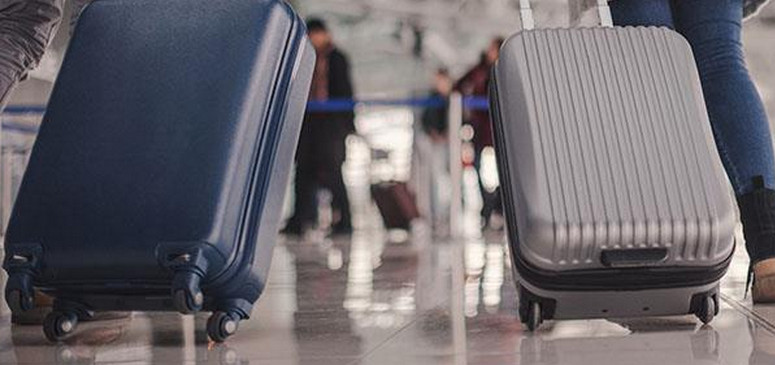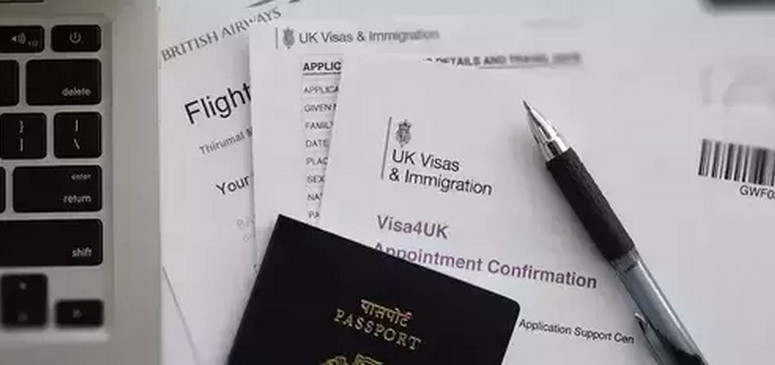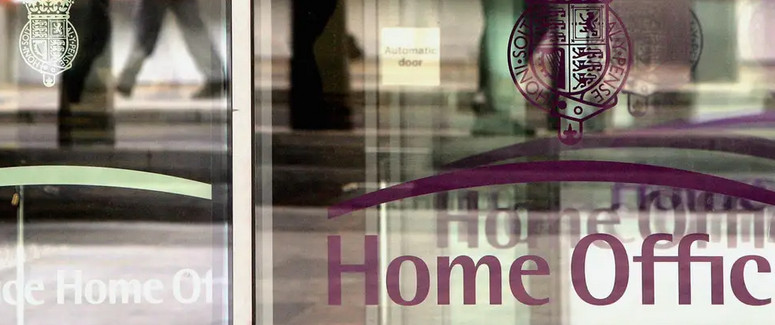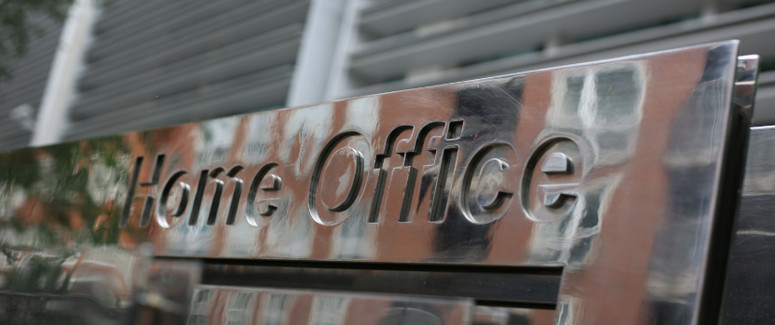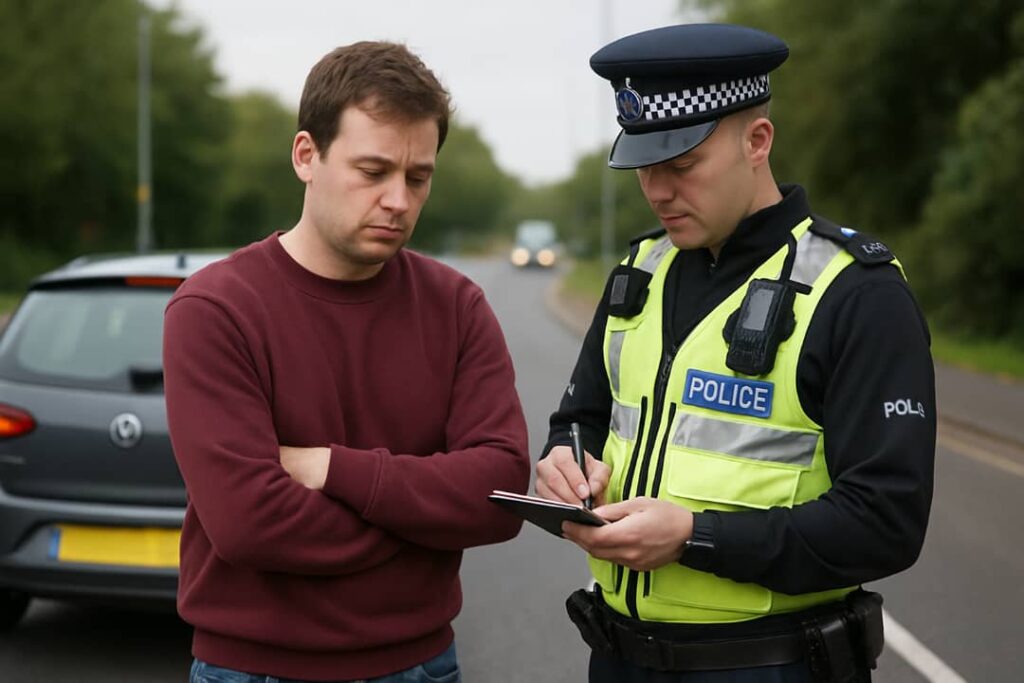What happens if caught drug driving is a question that concerns thousands of UK drivers annually. If you’ve been caught drug driving or are worried about potential consequences, understanding exactly what happens from roadside stop to court sentencing helps you prepare and protect your rights. Drug driving is a serious criminal offence in the UK carrying harsh penalties including mandatory driving bans, criminal records, and potentially severe fines. At Scarsdale Solicitors, we provide clear information about drug driving consequences and expert legal representation to minimise the impact on your life.
Being caught drug driving triggers a specific legal process involving roadside testing, police station procedures, blood analysis, and magistrates’ court proceedings. The penalties for drug driving first offence can be severe,minimum 12-month driving ban, unlimited fine, and criminal conviction appearing on standard DBS checks. However, understanding your rights and obtaining expert legal advice from the moment you’re stopped can significantly affect the outcome. Learn more about our comprehensive criminal defence services.This comprehensive guide explains exactly what happens if caught drug driving, from the initial police stop through to final sentencing, helping you understand the process and consequences you face.
Need urgent legal advice about drug driving? Call our 24/7 emergency line: 0161 660 6050
Stage 1: Being Stopped and Roadside Drug Testing
What happens if caught drug driving often begins with an initial police stop. Officers can stop any vehicle for routine traffic checks or if they suspect drug driving. Common reasons for stops include:
- Erratic driving (weaving, sudden braking, excessive speed or slowness)
- Collision or near-miss
- Routine traffic checkpoint
- Vehicle defects (lights out, damaged vehicle)
- Intelligence about drug activity
If officers suspect drug use (bloodshot eyes, pupil dilation, smell, admission, visible drugs), they may conduct a roadside drug test.
Roadside Drug Wipe (Preliminary Test)
Police use approved devices analysing saliva for eight common drug groups:
- Cannabis (THC)
- Cocaine
- Opiates (heroin, morphine)
- Amphetamines
- Methamphetamine
- Benzodiazepines (diazepam, temazepam)
- Methadone
- Ketamine
The officer will explain the test, swab your tongue or collect saliva, insert it into the device, wait 5–8 minutes, and show the result.
Important: Roadside drug tests are preliminary screening tools and are not definitive proof of drug driving. False positives may occur due to contamination, legal substances, or device malfunction.
Positive Roadside Test
A positive result usually leads to:
- Arrest on suspicion of drug driving
- Caution (anything you say may be used in evidence)
- Transport to a police station for evidential testing
- Vehicle seizure or removal arrangements
Negative Roadside Test
A negative result allows you to continue your journey. Police can still arrest you for drug driving if there is other evidence, such as:
- Clear signs of impairment
- Admission of drug use
- Failed field impairment test
- Discovery of drugs in the vehicle
Field Impairment Test (FIT Test)
Police may also conduct a field impairment test, including:
- Pupil dilation checks
- Balance tests (standing on one leg)
- Walking heel-to-toe
- Finger-to-nose coordination
- Romberg balance test (standing with eyes closed)
FIT tests are subjective; nervousness, medical conditions, fatigue, or footwear can cause failure. They are not definitive evidence of impairment.
For more information about your legal rights during a police stop, visit Gov.uk’s guide to your rights at the police station.
Stage 2: Arrest and Police Station Procedures
What happens if caught drug driving often progresses to arrest following a positive roadside test or a failed FIT test. The officer will:
- Clearly state that you are under arrest for drug driving
- Caution you (“You do not have to say anything, but it may harm your defence if you do not mention when questioned something which you later rely on in court. Anything you do say may be given in evidence.”)
- Explain the reasons for your arrest
- Search you and your vehicle
- Transport you to the police station
Critical: Do not discuss drug use or driving until you have legal representation.
At the Police Station
Upon arrival, the booking-in process includes:
- Recording personal details
- Explaining your rights, including free legal representation, notifying someone of your arrest, and access to medical assistance
- Logging and securing your property
- Taking fingerprints and a photograph
- Possibly collecting a DNA sample
Your Rights:
- Free legal representation (duty solicitor or your own solicitor)
- Inform someone of your arrest
- Medical assistance if required
- Access to the codes of practice governing detention
ALWAYS exercise your right to legal representation. Our police station representation service is free under legal aid and available 24/7.
Evidential Blood or Urine Test
Police will require evidential testing – either blood or urine sample:
Blood Test (Most Common):
- Taken by qualified medical professional (doctor or registered nurse)
- Two samples collected (approximately 5ml each)
- Samples sealed in police presence
- You witness the sealing process
Critical Statutory Option: When blood is taken, you have the statutory right to have one sample for independent analysis. ALWAYS exercise this right – it’s your only opportunity to verify police test results independently. Your solicitor will advise you on this.
Urine Test (If Blood Unavailable):
- Typically offered if medical reasons prevent blood sampling
- Two samples collected 20+ minutes apart
- More complicated legal rules around urine testing
Refusing to Provide Sample: Refusing evidential sample without reasonable medical excuse is a separate offence (“failing to provide specimen”) carrying the same penalties as drug driving itself. Don’t refuse unless medically impossible and doctor confirms this.
Police Interview
After providing samples, police may interview you. With your solicitor present:
- Listen to questions carefully
- Follow solicitor’s advice (which may be to answer “no comment”)
- Don’t admit drug use or make admissions
- Don’t estimate when you last used drugs
- Don’t speculate about drug test results
Release Under Investigation or Bail
After evidential samples and interview, you’ll typically be:
- Released under investigation (RUI) – no bail conditions, awaiting blood analysis results
- Released on police bail – conditions may include not driving, residence requirements, etc.
Blood analysis takes 2-6 weeks. Police will contact you once results are available.
To understand more about how criminal charges are brought and prosecuted, visit the Crown Prosecution Service website.
Stage 3: Blood Analysis Results and Charging Decision
What happens if caught drug driving continues with laboratory analysis. Your blood sample is sent to an approved forensic laboratory to test for 17 specified controlled drugs at legal limits.
The 17 Specified Drugs and Legal Limits:
Illegal Drugs (very low limits):
- Cannabis (delta-9-THC): 2 µg/L
- Cocaine (benzoylecgonine): 10 µg/L
- Ketamine: 20 µg/L
- MDMA (ecstasy): 10 µg/L
- Heroin (6-MAM): 5 µg/L
- LSD: 1 µg/L
- Methamphetamine: 10 µg/L
Prescription Drugs (higher “road safety risk” limits):
- Morphine: 80 µg/L
- Methadone: 500 µg/L
- Diazepam: 550 µg/L
- Temazepam: 1,000 µg/L
- Clonazepam: 50 µg/L
- Flunitrazepam: 300 µg/L
- Lorazepam: 100 µg/L
- Oxazepam: 300 µg/L
- Amphetamine: 250 µg/L
If Results Show Drug Levels Above Legal Limits:
- Police will contact you, usually by phone or letter
- You will be required to attend a police station
- Formally charged with drug driving under Section 5A Road Traffic Act 1988
- Issued a charge sheet detailing the allegations
- Given a court date (usually 3–6 weeks ahead)
- Bailed to attend magistrates’ court
If Results Show No Drugs or Below Limits:
- The case is closed with no further action (NFA) and you are informed by letter
- However, if prescription drugs are detected below limits but you have no valid prescription, you may still face possession charges
Postal Requisition Alternative:
- Sometimes, instead of attending a police station, you receive a postal requisition
- Official court summons by post
- Details of charges
- Court date and location
- Requirement to attend
Stage 4: Magistrates’ Court Process
All drug driving cases are dealt with at magistrates’ courts. The process involves several hearings.
First Appearance (Plea Hearing)
At your first court appearance:
What Happens:
- Charges read to you
- Asked to enter plea (guilty or not guilty)
- Court considers bail
- Next steps determined
Guilty Plea Route: If pleading guilty:
- Prosecution outlines facts
- Your solicitor presents mitigation
- Court considers sentence
- May sentence immediately or adjourn for reports
Not Guilty Plea Route: If contesting charges:
- Trial date set (usually 6-12 weeks ahead)
- Case management directions given
- Bail conditions set
- Prosecution must serve evidence
Should You Attend Court?
Yes, always attend. Failure to appear results in arrest warrant and additional charges. Dress smartly and professionally – magistrates’ impressions matter.
Getting to Court: If banned from driving, arrange alternative transport. Don’t drive to court – police often monitor court car parks.
Representation: Attending with a solicitor demonstrates seriousness and improves outcomes. Our court representation services provide expert advocacy at all London magistrates’ courts.
Trial Process (If Not Guilty Plea)
Trial involves:
- Prosecution presents evidence (police officers, forensic scientist)
- Your solicitor cross-examines prosecution witnesses
- Defence evidence presented (you may testify, character witnesses, expert witnesses)
- Legal submissions from both sides
- Magistrates decide guilty or not guilty
Sentencing Hearing
Whether after guilty plea or trial conviction, sentencing considers:
- Pre-sentence reports (sometimes ordered by court)
- Prosecution aggravating factors
- Defence mitigation
- Your circumstances
- Sentencing guidelines
For more information about how criminal courts work, visit Citizens Advice’s guide to criminal courts.
Drug Driving Penalties UK – What to Expect
Understanding drug driving penalties UK helps you prepare for likely outcomes and understand why expert legal representation matters.
Mandatory Minimum Penalties:
Driving Disqualification:
- Minimum 12 months mandatory ban
- Cannot be reduced below 12 months except in exceptional circumstances
- Applies even for drug driving first offence
- Applies to all drivers including learner drivers
Financial Penalty:
- Fine of up to £5,000 (unlimited in theory)
- Typical fines: £120-£600 depending on income
- Court calculates fine based on weekly income
- Additional victim surcharge (£34) and prosecution costs (£85-£620)
Criminal Conviction:
- Permanent criminal record
- DR code endorsement on driving licence (DR 10 for drug driving)
- Conviction appears on standard DBS checks
- Never spent for insurance purposes
Additional Potential Penalties:
- Community order (unpaid work, curfew) for serious cases
- Suspended sentence for very serious cases with aggravating factors
- Immediate custody extremely rare for simple drug driving first offence
Drug Driving Ban Length
Ban length varies based on aggravating and mitigating factors:
12 Months (Minimum): Standard for straightforward first offence with no aggravating factors
18 Months: Some aggravating factors present:
- Moderately high drug levels
- Some previous convictions
- Minor additional offences
24-36 Months: Significant aggravating factors:
- Very high drug levels
- Multiple drugs detected
- Poor driving or collision
- Passengers (especially children)
- Previous drug/drink driving convictions
Aggravating Factors Increasing Penalties:
Magistrates consider:
- Previous convictions (particularly driving offences)
- Very high drug concentration
- Multiple drugs in system
- Evidence of impaired driving
- Collision or near-miss caused
- Carrying passengers (especially children)
- Driving for hire/reward (taxi, commercial driver)
- Poor road/weather conditions
- Busy time/location
Mitigating Factors Reducing Penalties:
We present mitigation showing:
- First offence with clean record
- Low drug level just above limit
- Single drug detected
- No evidence of impairment
- No collision or danger caused
- Legitimate prescription medication
- Remorse and insight
- Good character
- Exceptional hardship consequences
Drug Driving Fine Amount
Courts calculate fines using structured approach:
Income-Based Calculation:
- Court assesses weekly income
- Applies fine “band” based on offence seriousness
- Band B (1 week’s income) typical for simple cases
- Band C (1.5 week’s income) for cases with aggravating factors
Examples:
- Income £300/week: Band B fine = £300
- Income £500/week: Band B fine = £500
- Income £1,000/week: Band B fine = £1,000
Courts consider ability to pay and may allow payment by instalments.
Additional Costs:
- Victim surcharge: £34
- Prosecution costs: £85-£620
- Total often £250-£1,000+ depending on income
Drug Driving Criminal Record and Long-Term Consequences
Understanding what happens if caught drug driving goes beyond immediate penalties. A conviction can create lasting consequences affecting many areas of life.
Criminal Record Impact
A drug driving conviction results in:
- Permanent criminal record (never spent for insurance purposes)
- DR 10 endorsement on driving licence for 11 years
- Appearance on standard DBS checks
- Requirement to declare to many employers
Employment Impact
- If You Drive for Work: Company car insurance may be invalidated immediately; many employers dismiss for criminal convictions; professional drivers (taxi, HGV, courier) risk licence revocation; sales roles requiring driving may become impossible.
- Professional Careers: Certain professions have strict conduct requirements. Teachers may face disciplinary action; healthcare professionals (doctors, nurses) may face registration review; legal professionals (solicitors, barristers) may face regulatory action; finance roles and security clearance jobs require disclosure.
International Travel
Some countries may refuse entry to people with drug convictions:
- USA: particularly strict, may refuse visa or entry
- Canada, Australia, New Zealand: reviewed case by case
Always check your destination’s requirements before travel.
Insurance After a Drug Driving Ban
- During Ban: Driving is illegal; insurers must be informed immediately to avoid policy voiding.
- After Ban: DR 10 endorsement must be declared; premiums may increase 20–50%; some insurers refuse cover; specialist convicted driver insurance may be required.
Relationship and Family Impact
Drug driving convictions can strain personal relationships:
- Loss of trust from partners
- Disappointment from family
- Social stigma
- Childcare or transport arrangements affected
Financial Consequences
Total costs include:
- Court fines and costs (£250–£1,000+)
- Higher insurance premiums (£500–£2,000+ per year)
- Job loss if driving is required
- Alternative transport costs
- Legal fees
Total costs can easily reach £5,000–£10,000+ over the ban period.
Mental Health Impact
Facing drug driving charges may cause:
- Anxiety and stress
- Depression
- Fear of job loss
- Relationship strain and social isolation
Seeking support, including counselling, is strongly recommended.
Drug Driving First Offence – What to Expect
If this is your first offence, understanding typical outcomes helps manage expectations.
Typical Penalties for First Offence:
- Minimum 12-month driving ban (mandatory)
- Fine £200–£400 (depending on income)
- Victim surcharge £34
- Prosecution costs £85–£200
- Community order or custody unlikely
Factors Favouring First Offenders:
Courts may consider:
- Clean driving record
- Demonstrated remorse
- Exceptional hardship arguments
- Character references
- Single lapse rather than repeated offending
However, Don’t Assume Leniency:
The minimum 12-month ban applies regardless of circumstances. First-offence status only affects:
- Fine amount (lower end of range)
- Possibility of community order (rare)
- Consideration of exceptional hardship
Avoiding a Ban:
Ban avoidance is very difficult but may be possible via:
- Successful defence (not guilty verdict)
- Special reasons arguments
- Extraordinary hardship (rare, requires compelling evidence)
Most first offenders realistically receive the 12-month minimum ban. The main goal is minimising fines and preventing extension of the ban.
What to Do If Caught Drug Driving – Immediate Steps
At the Roadside:
- Stay calm and polite with police
- Do not admit drug use or estimate timing of consumption
- Do not refuse roadside tests (separate offence)
- Note officer details and circumstances
- Avoid confrontation
At the Police Station:
- Request legal representation immediately
- Do not answer questions without a solicitor present
- Exercise statutory option for blood sample division
- Avoid estimating drug use timing
- Get solicitor contact details for ongoing representation
- Call us 24/7: [Phone Number] for immediate police station attendance anywhere in the UK
After Release:
- Contact a specialist motoring solicitor
- Gather evidence (prescriptions, medical records, witness statements)
- Avoid discussing case on social media
- Inform employer if conviction affects employment
- Consider job alternatives if driving is required
Before Court:
- Instruct experienced court representation
- Attend all appointments
- Prepare mitigation evidence
- Arrange character references
- Consider exceptional hardship evidence if ban threatens employment
At Court:
- Attend punctually in professional attire
- Turn off mobile phone
- Address magistrates respectfully as “Your Worships”
- Follow your solicitor’s advice
Learn more about our experienced legal team and firm history.
Frequently Asked Questions
What happens if caught drug driving for the first time?
For a first offence, you face a minimum 12-month driving ban, a fine typically between £200–£400, court costs of £85–£200, a victim surcharge of £34, and a criminal conviction. The process involves a roadside test, arrest, police station blood test, court appearance, and sentencing. The mandatory 12-month ban applies even for first offenders. However, fines are usually at the lower end of the scale, and community orders or custody are uncommon unless aggravating factors are present. Expert legal representation can help minimise penalties and explore defence opportunities.
How long is the ban for drug driving in the UK?
The minimum ban for drug driving is 12 months and cannot legally be reduced except in very rare special reasons cases. Aggravating factors, such as high drug levels, multiple drugs, poor driving, or previous convictions, can increase the ban to 18–36 months. Professional drivers and repeat offenders face longer bans. The final length depends on circumstances, your driving record, and quality of legal mitigation.
Will I lose my job if caught drug driving?
Employment impact depends on your role. If you drive for work (company car, sales, delivery) or are a professional driver (taxi, HGV, courier), job loss is highly likely. Other professions (teaching, healthcare, law, finance) may face disciplinary proceedings. Many employment contracts allow dismissal for criminal convictions. Some employers may show leniency for first offences, particularly with strong mitigation, remorse, or willingness to work in a non-driving role.
Can you avoid prison for drug driving?
Immediate custody is extremely rare for standard drug driving offences. Prison is only possible in very serious cases: extremely high drug levels, dangerous driving causing collisions, multiple prior convictions, breach of court orders, or multiple drugs detected alongside poor driving. Community orders or suspended sentences are far more likely. For a typical first offence, driving ban and fine are the expected outcomes. Refusing an evidential sample or failing to attend court can increase the risk of custody.
Does drug driving show on a DBS check?
Yes. Drug driving convictions appear on both standard and enhanced DBS checks as a motoring offence with a DR 10 endorsement. Convictions never become “spent” for insurance purposes, but may become spent for other purposes after the rehabilitation period. Employment requiring DBS checks will see the conviction. Being honest, demonstrating remorse, and showing rehabilitation can help mitigate employment impact.
What are the penalties for cannabis while driving?
Cannabis drug driving carries the same penalties as other drug driving offences: minimum 12-month ban, unlimited fine (typically £200–£500), criminal conviction, and DR 10 endorsement. Cannabis has a very low legal limit (2 µg/L) and can be detectable for weeks in regular users. Defence strategies often focus on proving the drug was consumed days or weeks before driving, when impairment was not present.
Can prescription drugs lead to a drug driving ban?
Yes. Prescribed medications, including morphine, methadone, diazepam, temazepam, and amphetamines, can result in a conviction if blood levels exceed legal limits. Successful defence often involves proving a valid prescription, adherence to prescribed usage, legitimate medical need, and therapeutic blood levels. Courts may impose minimum bans with lower fines for prescription cases, and some may result in not guilty verdicts if medical evidence is strong. Always carry prescription documentation and inform police that the drug is prescribed.
How much does insurance increase after drug driving?
Insurance premiums typically rise 20–50% due to the DR 10 endorsement. Some insurers refuse cover, requiring specialist convicted driver insurance. For example, an annual £600 policy may rise to £720–£900. Young drivers may see 50–100% increases. DR 10 remains on the licence for 11 years, affecting premiums throughout. Never conceal convictions, as doing so can void policies and result in prosecution.
Get Expert Legal Advice About Drug Driving
If you’ve been caught drug driving or are facing charges, do not navigate this stressful process alone. Expert legal representation from arrest through court sentencing can significantly improve outcomes.
Why you need specialist legal advice:
- Protect your rights at the police station
- Ensure correct procedures are followed
- Identify defence opportunities
- Challenge unreliable test results
- Present strong mitigation
- Minimise penalties and ban length
- Explore exceptional hardship arguments
Contact Scarsdale Solicitors immediately for expert criminal defence representation:
📞 24/7 Emergency Line: 0161 660 6050
📧 Email: Info@scarsdalesolicitors.com
📍 Office Address: Reed House, 3–4 Hunters Lane, Rochdale, Greater Manchester, OL16 1YL
🌐 Website: www.scarsdalesolicitors.com Or complete our online contact form for a callback within hours.
Or complete our online contact form for a callback within hours.
Our services include:
- Free police station representation 24/7
- Immediate attendance at any UK police station
- Expert advice on evidential sampling
- Comprehensive defence investigation
- Specialist court representation
- Fixed fee options available
- Flexible payment plans
Don’t risk your licence and livelihood:
The first few hours after arrest are critical. Decisions made at police station affect your entire case. Having expert legal representation immediately protects your interests and maximises defence prospects.
Many drug driving cases are successfully defended or penalties minimised through expert legal representation. Don’t assume conviction is inevitable or accept maximum penalties without fighting for better outcomes.
Learn more about our 24/7 emergency legal services.
Call now for immediate help: 0161 660 6050
Your future is too important to face alone. Get the expert legal support you deserve.
